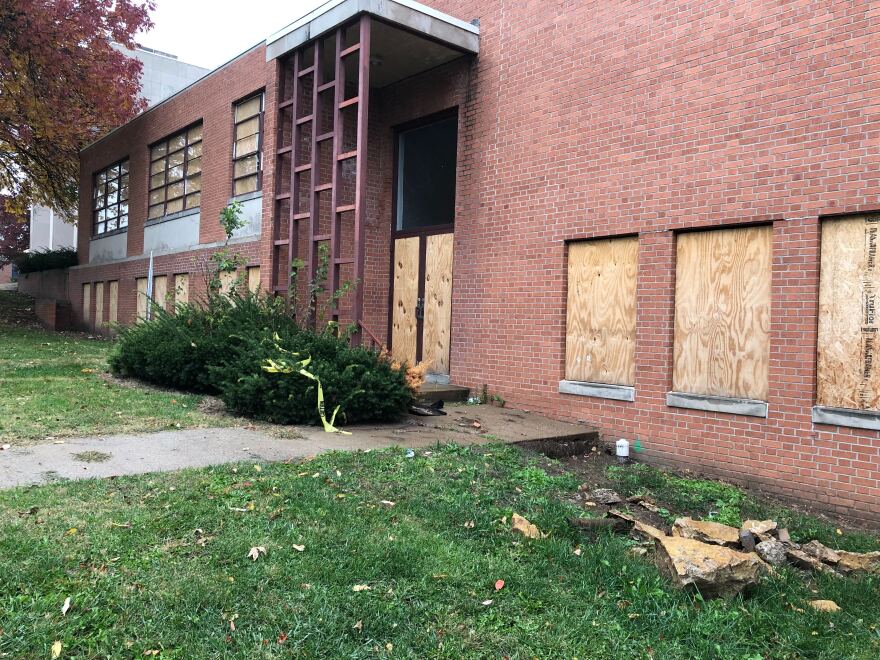A Kansas City charter school that closed in 2018 still owes millions of dollars to the state – and the Missouri Attorney General’s office has gotten involved.
Benjamin Banneker Charter Academy of Technology leaders resisted closure at every turn. They also never distributed any of the computers or education materials to other schools, according to the closure coordinator, and are possibly sitting on millions of dollars owed to the state after selling their building.
“There’s been no accountability with assets, money, anything,” said Dana Cutler, an attorney hired by Banneker’s sponsor, the University of Central Missouri. “They sold the school building, which they paid for with state money. I mean, they’re probably sitting on $3 or $4 million that belongs to the state.”
Charter schools are public schools that receive funding from the state but operate independently under the supervision of a sponsor. Banneker had some of the lowest test scores in the state, though, so UCM informed school leaders in October 2017 that the charter wouldn’t be renewed.
School leaders then tried to fight the closure in court, arguing that DESE’s rating system for schools discriminated against charters, which should be evaluated by different criteria. An appeals court judge dismissed this argument in August of this year.
When charters close, they’re supposed to distribute anything in the building to the schools their students transfer to, then they’re supposed to sell the building and return any money to the state. In February, The Children’s Place entered into a purchase agreement with Banneker for the former charter school at 6401 Rockhill Road, at the intersection with Meyer Boulevard.
UMB loaned The Children’s Place $6 million to purchase the building, according to records on file with the Jackson County Recorder of Deeds office. That’s considerably more than the $1.5 million Banneker paid for the building in 2007.
When KCUR asked the Department of Elementary and Secondary Education exactly how much money was unaccounted for, the request was forwarded to the Missouri Attorney General’s office. In an email, a spokesman wrote, "We’re negotiating that matter, and we wouldn’t be able to release more info until numbers are finalized and DESE gets money back."
No lawsuit has been filed, apart from Banneker school leaders’ attempt to fight the closure in court. They tried to argue that DESE’s rating system for schools discriminated against charters, so UCM should have used different criteria to evaluate it for sponsorship. An appeals court judge dismissed their lawsuit in August of this year.
Cutler says when charters close, administrators have an obligation to help students and teachers find new schools.
“You’re supposed to make getting kids into new schools easy,” Cutler said. “Take care of your kids. That’s what you signed up to do.”
But when representatives from the Kansas City Public Schools and other charter schools showed up at Banneker for a school fair organized by Show Me KC schools, the doors were locked.
“It is important to point out that each charter school operates independently,” said Doug Thaman, the executive director of the Missouri Charter Public School Association. “Each school is responsible for ensuring that their reporting and fiscal management practices are accurate and transparent. A bad action at one school is an isolated event and does not reflect on the methods of any other school.”
Cutler, who’s helped close half a dozen charter schools in Kansas City, says it usually happens without incident. But when Hope Academy closed a few years ago, the Missouri Auditor had to get involved because the superintendent was running an attendance racket, overcharging the state nearly $4.3 million.
In that case, though, Cutler says Hope Academy’s board actually went to the auditor with concerns about one bad actor.
Banneker’s former superintendent, Marian Brown, did not return requests for comment.
Editor's note: A spokesman for the Missouri Attorney General's office initially said they were "litigating" with Banneker, then corrected himself to say "negotiating."
Editor Dan Margolies contributed to this report.
Elle Moxley covers education for KCUR. You can reach her on Twitter @ellemoxley.




